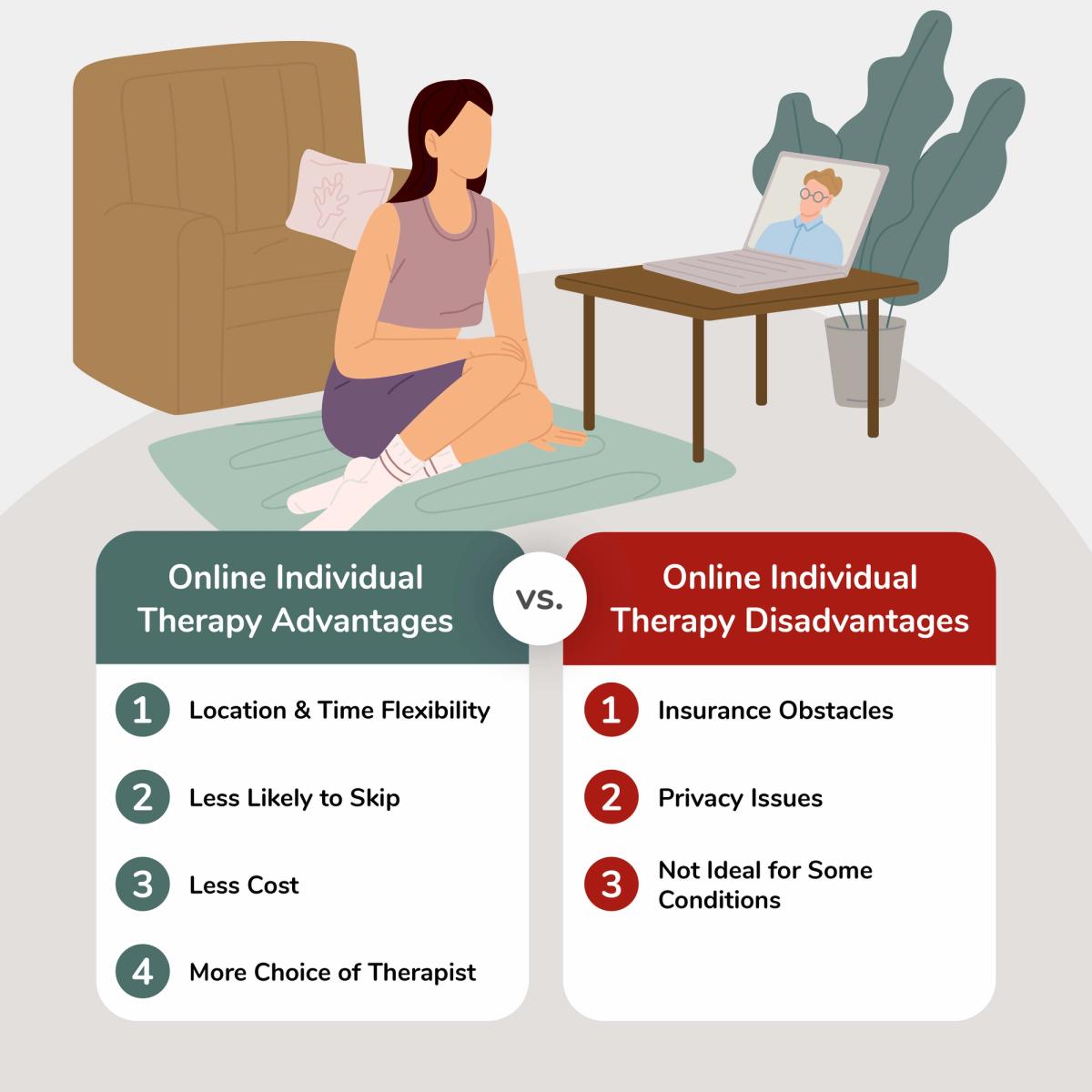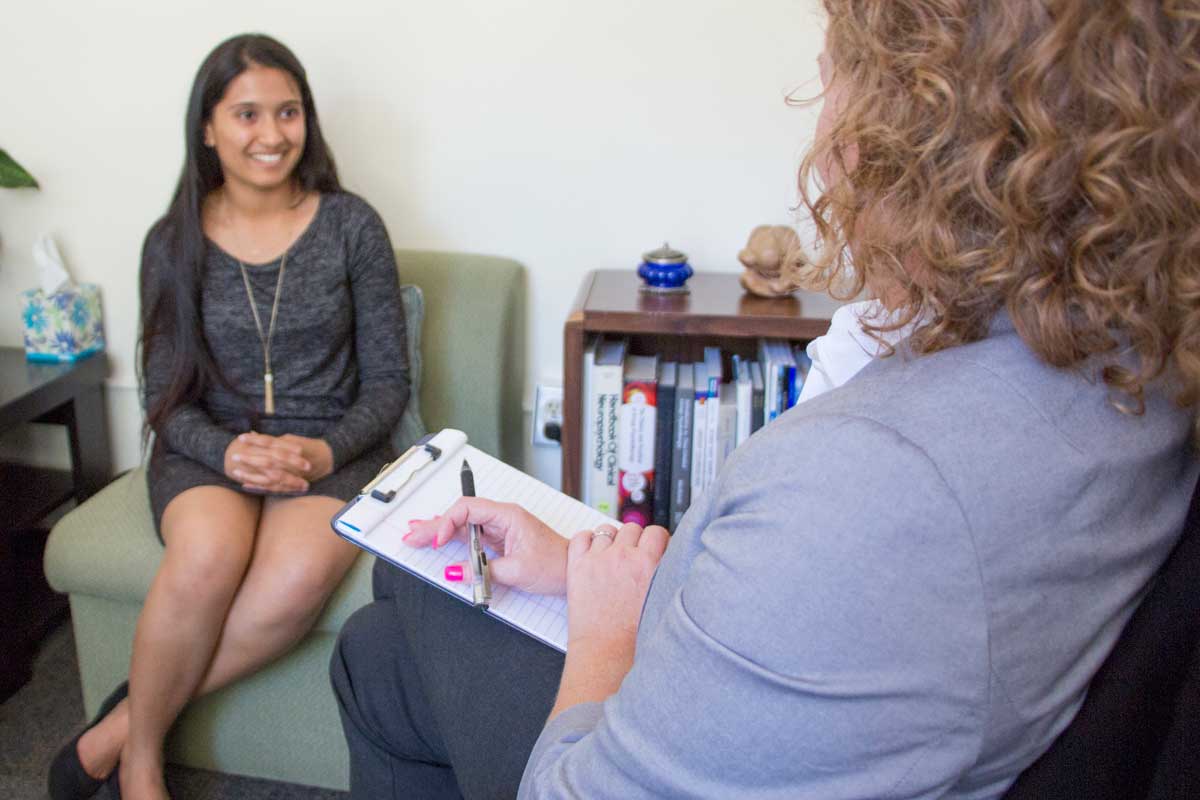Individual Therapy Toronto expert answers: everything parents and teens should know
Wiki Article
Checking out the Benefits of Mental Therapy for Teen Health and Development
Mental therapy plays an essential duty in the well-being and growth of teens. Teenage years is a turbulent duration marked by social and psychological challenges. Therapy provides an organized setting for teenagers to express their feelings and challenge their struggles. It outfits them with necessary devices for resilience and interaction. As they navigate this developing stage, the effect of treatment can be extensive. What particular advantages can arise from such assistance throughout these developmental years?
Recognizing the Teen Mind: Challenges and Pressures
As adolescents navigate the intricacies of their developing stage, they face various difficulties and pressures that can significantly affect their mental health and wellness. This period is noted by substantial physical, emotional, and social adjustments, which can induce sensations of confusion and unpredictability. Peer impact increases, commonly resulting in a battle for approval and identification. Academic expectations can create added stress, as the stress to succeed mounts in a significantly competitive environment.The introduction of social media introduces a brand-new layer of intricacy, where comparisons to curated online identities can exacerbate sensations of inadequacy and stress and anxiety. These factors can result in psychological distress, including anxiousness, anxiety, and reduced self-esteem. Understanding these challenges is essential for moms and dads, teachers, and psychological health and wellness professionals, as it offers insight right into the teen experience and highlights the demand for helpful treatments to promote durability and well-being throughout this important developing stage.
Producing a Safe Room for Expression
Producing a secure area for expression is vital for teens maneuvering their troubled developing phase. In healing settings, this setting fosters open dialogue, permitting teens to interact their sensations without anxiety of judgment. Such rooms allow them to discover their emotions and thoughts, which is necessary for comprehending their identities and experiences.When teenagers really feel secure, they are more probable to share their struggles, including anxiousness, depression, or social problems. This open communication can lead to much deeper understandings and help with individual growth.
A secure room motivates creativity and self-reflection, providing teenagers the freedom to express themselves with different outlets, such as art or writing. Developing trust fund between the therapist and the teenage is important, as it underpins the performance of the restorative process. Inevitably, creating a secure area for expression serves as a foundation for emotional recovery and personal advancement during these developmental years.
Developing Coping Methods and Resilience

Specialists commonly present techniques such as mindfulness, journaling, and analytic abilities, making it possible for teenagers to manage their responses a lot more efficiently. Furthermore, by taking part in role-play scenarios, they exercise exactly how to handle tight spots, enhancing their self-confidence. In time, these abilities promote a feeling of company, outfitting teens with the tools to navigate life's unpredictabilities. The growth of durability not just aids in getting over immediate challenges however also prepares for much healthier psychological reactions in adulthood, ultimately adding to long-lasting well-being.
Enhancing Communication Abilities
Effective communication abilities are necessary for young adults as they navigate complicated social landscapes. Mental therapy plays an essential role in improving these skills, allowing adolescents to share their ideas and feelings a lot more plainly. With led sessions, therapists encourage teens to articulate their sensations, assisting in much better understanding in peer interactions and family characteristics.Additionally, therapy provides a safe room for practicing active listening, empathy, and assertiveness. These abilities equip teenagers to take part in meaningful conversations, resolve disputes, and develop stronger partnerships. As they find out to connect properly, they also gain self-confidence in their capacity to advocate for themselves and their requirements.
Additionally, boosted communication skills add to emotional intelligence, permitting teenagers to acknowledge and react to the feelings of others. This holistic advancement fosters an encouraging setting, inevitably advertising overall wellness and social combination. With psychological treatment, teenagers can cultivate these necessary skills for a healthier social experience.
Fostering Personal Growth and Self-Discovery
Promoting individual growth and self-discovery in teens includes a diverse method that motivates understanding of personal identification. This procedure additionally stresses the significance of building durability skills and enhancing psychological awareness. With each other, these aspects produce a foundation for much healthier, more confident people as they navigate their formative years.Understanding Individual Identification
Exactly how do teenagers browse the complex landscape of personal identification as they seek for self-discovery and development? Throughout this developmental period, they grapple with numerous impacts, consisting of peers, household, and social assumptions. Mental therapy can work as a crucial device, giving a secure area for exploration and reflection. Through led conversations, teenagers can express their thoughts and sensations, permitting them to recognize their beliefs, wishes, and worths. This procedure promotes a much deeper recognition of their one-of-a-kind identification, empowering them to make informed choices and establish a feeling of function. As they engage in self-discovery, they discover to embrace their originality and navigate challenges with greater clearness, ultimately improving their total wellness and personal development.Building Strength Skills

Enhancing Psychological Understanding
Enhancing emotional awareness is important for teenagers navigating the intricacies of teenage years, as it allows them to recognize and comprehend their feelings much more properly. By taking part in mental treatment, teens find out to acknowledge their emotional feedbacks and the triggers behind them. This process promotes individual growth and self-discovery, allowing them to verbalize their feelings and handle challenges more expertly. As teens create emotional awareness, they grow empathy, improve connections, and improve communication abilities. In addition, this increased recognition help in decision-making, helping them navigate social pressures and create a feeling of identification. Eventually, cultivating psychological understanding through therapy can lead to much healthier coping systems and a more well balanced mood, essential for thriving during these developmental years.Building Healthy Relationships and Assistance Equipments
While passing through the intricacies of teenage years, developing healthy partnerships and assistance systems is essential for young adults. These links provide psychological security and a feeling of belonging, critical during this developing stage. Favorable image source relationships with peers, family members, and advisors can boost self-esteem and strength, making it possible for teens to navigate difficulties extra effectively.Mental treatment plays a pivotal duty in fostering these relationships by gearing up teenagers with interaction and conflict-resolution skills. Via therapy, they discover to express their sensations, understand different perspectives, and establish limits, which are essential for preserving healthy communications.
Furthermore, supportive networks urge young adults to look for assistance when required, lowering isolation and promoting mental health. When teens feel connected to their assistance systems, they are more probable to participate in constructive behaviors and make informed decisions. Generally, the farming of healthy relationships and support systems contributes in This Site advertising teen health and personal development
Regularly Asked Concerns
How Do I Discover a Competent Therapist for My Teenager?
To discover a qualified therapist for a young adult, one must seek suggestions from doctor, study qualifications online, check evaluations, and determine the specialist focuses on adolescent problems, cultivating a helpful environment for growth.What Are the Prices Connected With Psychological Treatment for Teenagers?
The costs connected with psychological therapy for teens vary commonly, typically ranging from $50 to $250 per session. Insurance policy coverage, sliding scale fees, and regional resources can affect price and ease of access for households seeking support.
Exactly How Often Should Teenagers Go To Treatment Sessions?
Teens must preferably participate in treatment sessions regular or biweekly, depending on individual demands. Regular sessions can foster a risk-free room for expression, while permitting specialists to monitor progress and adjust strategies properly over time.Can Therapy Be Effective for All Teenagers?
Treatment Click This Link can be effective for many teenagers, yet specific results vary. Elements such as personal conditions, visibility to the process, and the healing technique used all affect its efficiency for every teen.What Should Moms and dads Do During Their Young adult's Therapy Process?
Parents ought to proactively support their young adult's treatment process by maintaining open interaction, respecting discretion, attending sessions if welcomed, and motivating their youngster's efforts (Individual Counselling Services). Recognizing and persistence are necessary as teenagers navigate their individual growth journeyPsychological therapy plays an essential role in the wellness and development of teenagers. By engaging in psychological therapy, teenagers find out to recognize their psychological responses and the triggers behind them. Psychological therapy plays a crucial role in promoting these partnerships by equipping teenagers with interaction and conflict-resolution skills. Young adults ought to preferably participate in therapy sessions regular or biweekly, depending on private requirements. Moms and dads must actively support their teenager's therapy procedure by preserving open interaction, appreciating confidentiality, participating in sessions if invited, and urging their kid's initiatives.
Report this wiki page